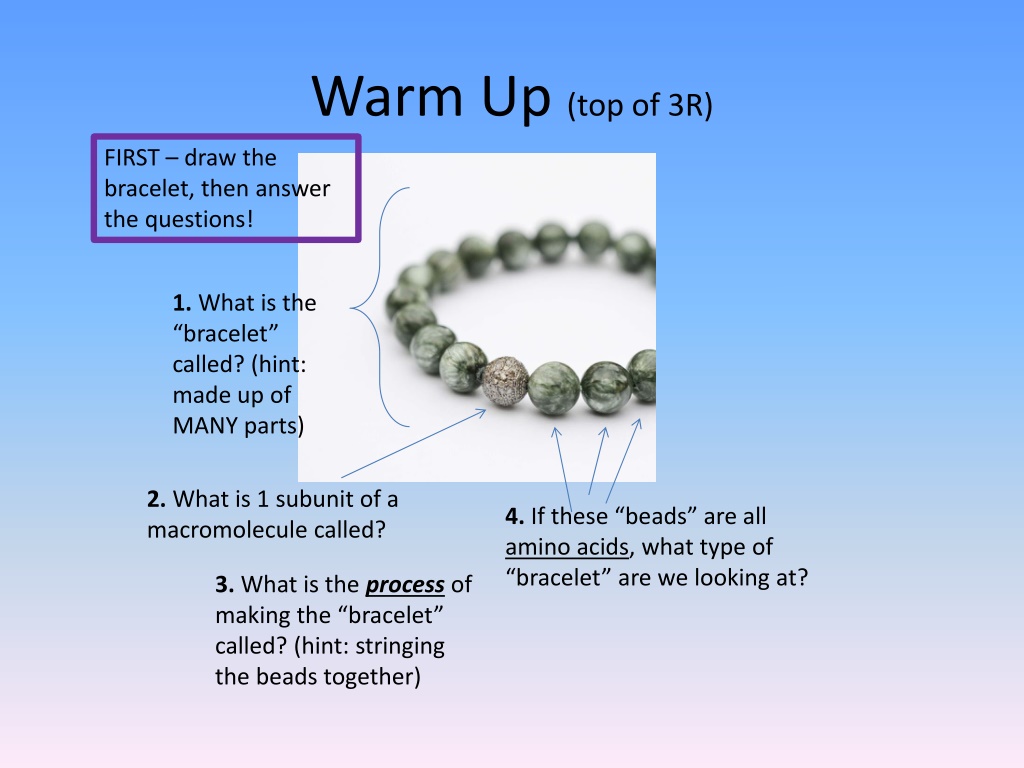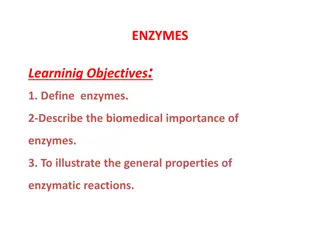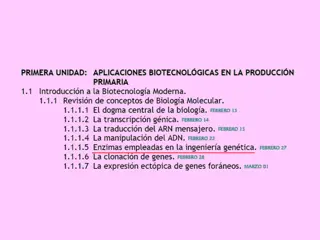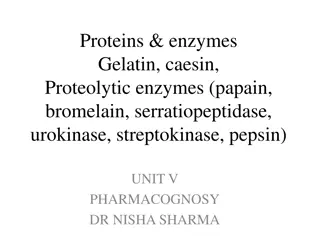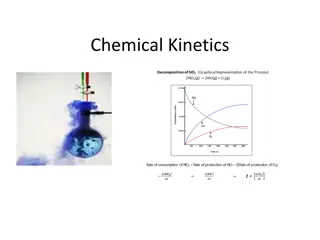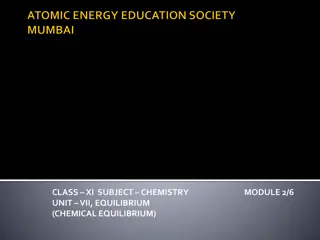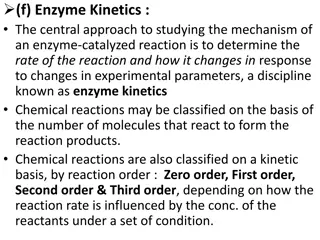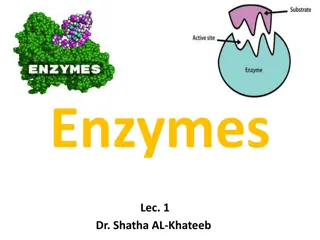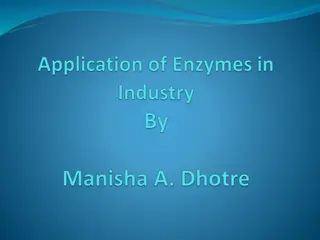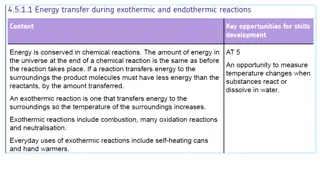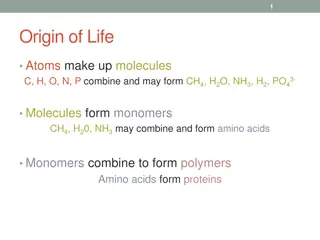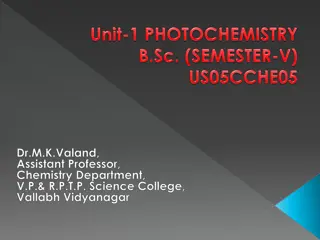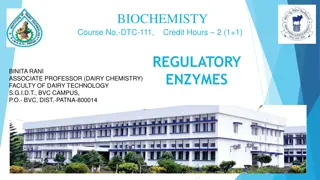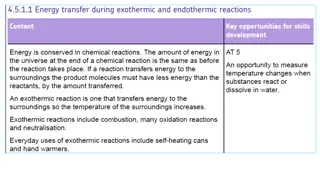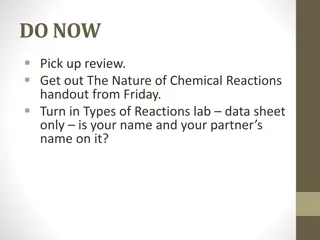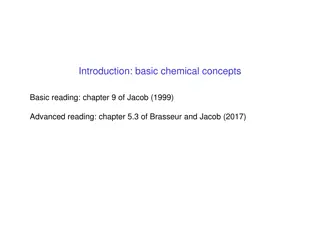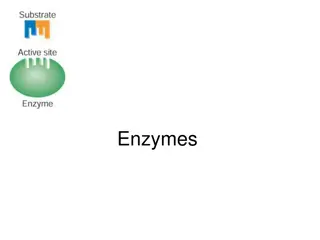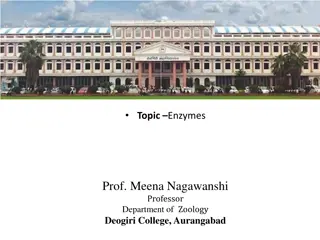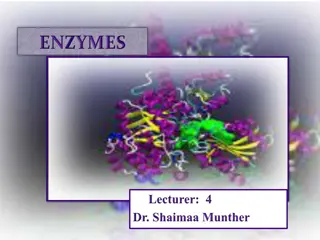Exploring Enzymes: The Key Players in Chemical Reactions
Enzymes play a crucial role in speeding up chemical reactions in living organisms. This warm-up session introduces the concept of enzymes using a bracelet analogy, highlighting their significance in digestion and other biological processes. The interactive content covers enzyme structure, function, and factors that can affect their efficiency. Explore how enzymes work, their importance in maintaining biological processes, and the consequences of enzyme damage.
Download Presentation

Please find below an Image/Link to download the presentation.
The content on the website is provided AS IS for your information and personal use only. It may not be sold, licensed, or shared on other websites without obtaining consent from the author. Download presentation by click this link. If you encounter any issues during the download, it is possible that the publisher has removed the file from their server.
E N D
Presentation Transcript
Warm Up (top of 3R) FIRST draw the bracelet, then answer the questions! 1. What is the bracelet called? (hint: made up of MANY parts) 2. What is 1 subunit of a macromolecule called? 4. If these beads are all amino acids, what type of bracelet are we looking at? 3. What is the process of making the bracelet called? (hint: stringing the beads together)
Enzymes! 3R
One type of protein is an ENZYME Enzymes are important PROTEINS found in all living things. They change the rate of chemical reactions. Example: Some enzymes help to speed up the digestion of our food. The name of many enzymes ends in -ase: Ex: salivary amylase, protease, etc.
Thinking Cap Why is it important that food gets digested quickly? What would happen if our enzymes got damaged and couldn t speed up reactions like digestion?
So how do enzymes work? They work like a lock and key Important terms: The molecules that interact with the enzymes are called the substrates. The new substances formed by the chemical reaction are called the products. Video!!!
Digestion: whole food goes in, is broken down, & macromolecules are extracted for use by the body (PRODUCTS) (This is where Mrs. A should show the video! https://www.youtube.com/watch?v=bNMsNHqxszc)
Enzymes also Lower the activation energy of a reaction in order to Increase the rate of reaction! Which hill is easier to get up?
HOW enzymes speed up chemical reactions Thinking Cap: What is one difference you notice between the reaction with an enzyme vs. the reaction without an enzyme? Video clip!!!
What can happen to enzymes (& other proteins) If you change: pH (more acidic or more basic) Temperature (hotter or colder) Concentrations (more or less substrate) Then your protein won t work as well, or even not at all this is because it will DENATURE (=unravel!!!)
Thinking Cap Could an enzyme from your mouth (pH=7) function in your stomach (pH=2) ? Why / why not? Explain
Enzyme Inhibitors Sometimes we need Enzymes to stop doing their jobs so well! ex: killing bacteria that are killing our cells Basically: Enzyme Inhibitors BLOCK substrates from binding to the Active Site of the enzyme
